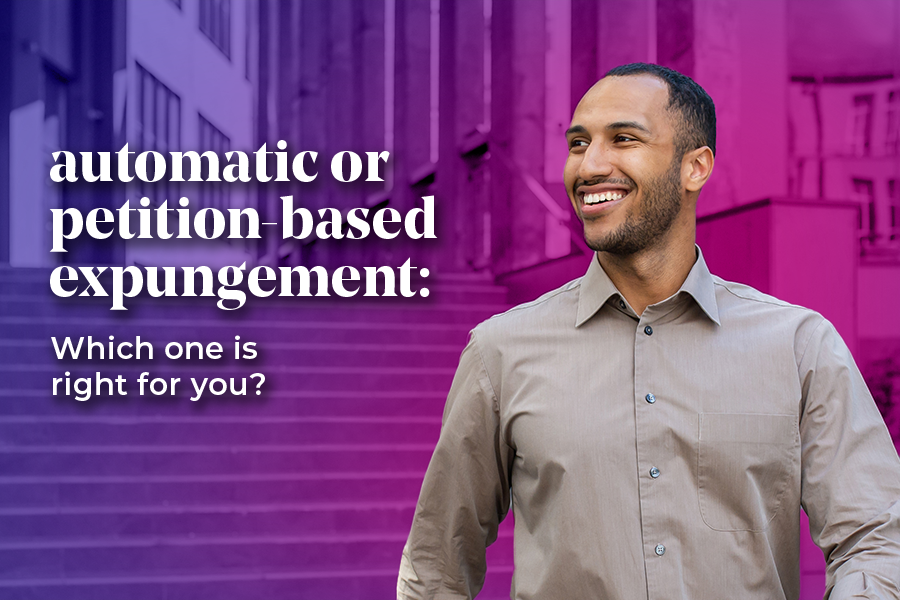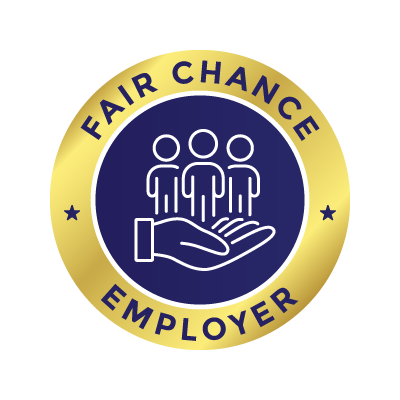Navigating the path to a clear criminal record in Utah can feel confusing, but we're here to simplify things! Utah offers two main ways to expunge (or clear) criminal records: automatic record clearance under the Clean Slate law and petition-based expungement through the courts. Let’s break down the differences to help you understand which option may apply to you.
Automatic Record Clearance Under Utah’s Clean Slate Law
Thanks to the Clean Slate law, certain criminal records may be cleared automatically. However, this process can take time, and just because a record is eligible for automatic clearance doesn’t mean it’s been expunged yet. If your record is eligible for automatic expungement but hasn’t been cleared, it will still show up in our eligibility tool. This means your record hasn’t yet been removed. Under a new law that went into effect on October 1, 2024, individuals seeking an automatic expungement must now fill out a form asking the court to expunge their cases. This form can be found on the court’s website here, under the heading, “I am asking for automatic expungement.”
Petition-Based Expungement through the Courts
Felony records, class A misdemeanor offenses other than drug possession, and certain Class B misdemeanors will not be eligible for automatic record clearance, and must be cleared under a petition or court based process.
The petition-based process requires a person to prepare and submit paperwork to courts, prosecutors, and the Bureau of Criminal Identification (BCI). Clearing a record this way normally takes about 6 months. Rasa offers affordable flat-rate representation for petition-based expungements starting at just $250 per case.
Automatic or Petition-Based: What is right for you?
Automatic will help with some misdemeanors, but it won’t help with higher level misdemeanors and felonies. Since not everything is eligible for automatic expungement, what process is right for a person may depend on what the law allows. To learn more about what offenses are eligible for automatic expungement, check out our page on the automatic clearance law.
But even where someone has records eligible for automatic record clearance, it may make sense to go through the petition-based process.
Petition-based expungement has shorter waiting periods. One reason why someone may go through the petition-based process is that the waiting period for clearance is shorter. Under the clean slate law, individuals must wait 5 years for a class C misdemeanor, 6 years for a class B misdemeanor, and 7 years for a class A drug possession. Those same waiting periods are 3, 4, and 5 years under the petition-based process. So, for individuals who have a more urgent need to have their records cleared, like for an upcoming job, promotion, or need for a professional license, opting to proceed with petition-based expungement can lead to quicker record clearance.
How to tell what records qualify for which type of relief?
Eligibility for expungement is governed by Utah’s Expungement Act, which can be complex and overwhelming.
However, we have created an easy way to check what is on your record, and whether each of those records is eligible for automatic or petition-based expungement. Once you have your results, our tool lets you connect directly with our team of experts to discuss what is on your record, and what path is best for you based on your circumstances and goals. Most people have some kind of record clearance option, the question is how. Ultimately, we are here to help you pave the way to a brighter future and can’t wait to help you get started!




